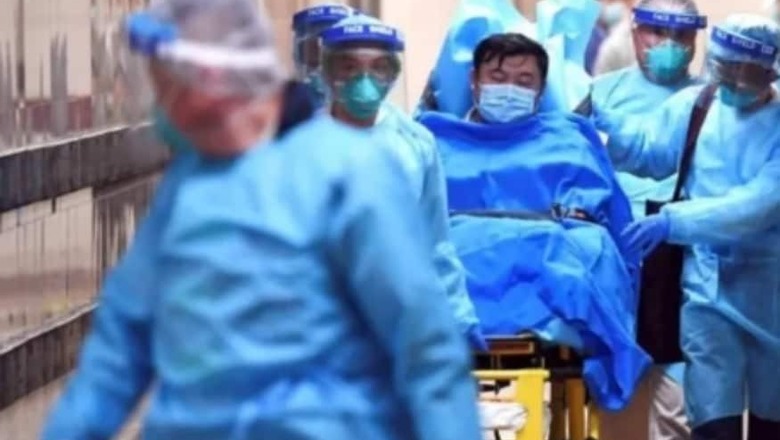
views
New Delhi: More than 113, 000 people have been affected worldwide due to COVID-19 and nearly 4,000 people have lost their lives due to the virus, which originated from China’s Wuhan city last year in December. The novel coronavirus has caused panic among the people worldwide and hence people are taking all precautionary measures to contain its spreading.
You should not be panic. But should be concerned and aware of the symptoms:
People infected with novel coronavirus take five days on average to start showing symptoms of the virus, disease analysts at Johns Hopkins University said on Monday, in the largest such study of known cases worldwide.
A 14-day monitoring and quarantine period for people who have been exposed to infection is advised. Some state health agencies are recommending people isolate themselves for that period after returning from any international travel.
“We have a lot of confidence that the incubation period is around five days,” The Wall Street Journal quoted Justin Lessler, an epidemiologist at the Johns Hopkins University Bloomberg School of Public Health who led the team that analyzed the progression of the disease in 181 cases, as saying.
“Some people will have really short incubation periods and some people will have really long ones,” he said. “The goal is catching most cases that are infected and have symptoms developed before the deadline.”
Among people told to self-quarantine, isolate themselves or stay home are people returning from parts of China and Iran, those who developed symptoms after spending time in other countries with sustained community transmission, and those with no known exposure who are sick.
According to the U.S. Centers for Disease Control and Prevention, people are said to be more contagious when they become symptomatic because the virus is typically spread when someone coughs or sneezes. In such a case, people are tend to isolate themselves in order to contain the virus from being spread further.
Other researchers studying a smaller number of cases estimated COVID-19 has an incubation period as short as two days to as long as 14 days, with a few reported cases taking up to 27 days to develop.
In research published Monday online in the academic medical journal Annals of Internal Medicine, the scientists calculated that the median incubation period of the virus is 5.1 days. All told, about 97.5% of those who develop symptoms will do so within 11.5 days of exposure, The Wall Street Journal reported, the scientists as saying. Even so, they cautioned that, as a matter of statistical probability, the 14-day monitoring and quarantine period likely would miss some cases.
As of Monday, the disease had spread to more than 100 countries and territories and millions of people under quarantine in affected places. But the Johns Hopkins researchers focused only on confirmed cases of Sars-CoV-2 infection reported between January 4 and February 24 outside of Hubei province in China, the epicenter of the virus.
All told, researchers analysed 181 reports in the news media and public-health notices that included the likely dates of patient exposure and first symptoms. All of them involved people who had traveled to Hubei or its capital Wuhan. That way, the scientists could use travel itineraries to estimate the time of first exposure, Dr. Lessler said.
Scientists acknowledge the weaknesses in analysing secondhand reports but Dr. Lessler said that under the circumstances, it is the most reliable way to help determine the incubation period without access to individual patient records.
“That early period of the epidemic is important in figuring out the incubation period because it is your only time when you can be confident about catching those exposure points,” Dr. Lessler said.
Generally, the researchers’ estimate of a 5.1-day incubation period for the novel coronavirus is in line with the known behavior of two closely related coronaviruses—Sars-CoV and Mers-CoV—that have caused infectious disease outbreaks in recent years. Other coronaviruses responsible for the common cold typically have an incubation period of about three days, the scientists said.




















Comments
0 comment